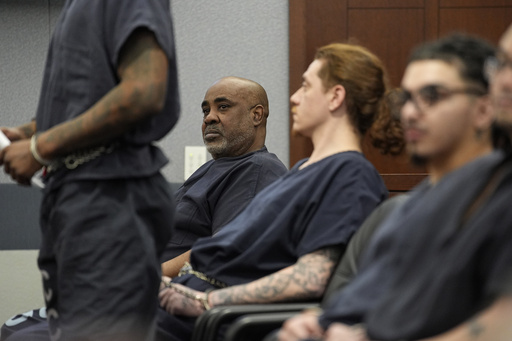LAS VEGAS — A judge in Nevada has decided to delay the murder trial of the sole suspect charged in the 1996 homicide of rap legend Tupac Shakur. This postponement, which comes nearly a year after the trial was originally scheduled, was deemed necessary due to new revelations put forth by the defense and the ultimate goal of delivering a fair trial.
Duane “Keffe D” Davis, whose trial was initially planned for next month, will now appear in court on February 9, 2026. The judge has mandated both prosecutors and the defense to reconvene over the summer for a status update on the case.
During a brief court hearing, Clark County District Court Judge Carli Kierny emphasized that significant preparatory work remains before Davis can receive the effective legal representation he is entitled to. After the judge’s inquiry about the timeline, Davis expressed his agreement with the long delay.
Last Friday, Davis’ defense team filed a motion requesting additional time, citing the necessity for crucial investigative work and the interviewing of witnesses in the pursuit of a fair trial. They revealed that a private investigator had located witnesses prepared to testify that Davis was not present at the time of the shooting.
Carl Arnold, the lead attorney representing Davis, highlighted the complexity of the case, noting that it hinges on old allegations that have yet to be thoroughly investigated.
On the evening of September 7, 1996, Shakur was a passenger in a BMW driven by Marion “Suge” Knight, a well-known figure in the music industry. While they were halted at a red light, a white Cadillac approached and opened fire.
Davis, who has a history as a gang leader, has been accused of masterminding the murder of Shakur near the Las Vegas Strip and is currently awaiting trial behind bars after his arrest in September 2023.
In various interviews and his autobiographical account, Davis has admitted to supplying the firearm used in the drive-by incident and acknowledged being present in the vehicle. However, his legal filings assert that his past statements regarding orchestrating the shooting were primarily aimed at entertainment and financial gain.
Arnold contended that Davis should never have faced charges due to alleged immunity agreements he claims to have established years earlier with both federal and local prosecutors while residing in California.
On the other hand, prosecutors maintain that they possess substantial evidence against Davis and argue that any immunity pact was restrictive in nature.
Defense attorneys are also questioning the circumstances surrounding Shakur’s death, pointing to witness accounts that suggest he was stable after the shooting before suddenly deteriorating while hospitalized a week later. They plan to consult with medical and forensic specialists to explore possible alternative explanations for his death.




